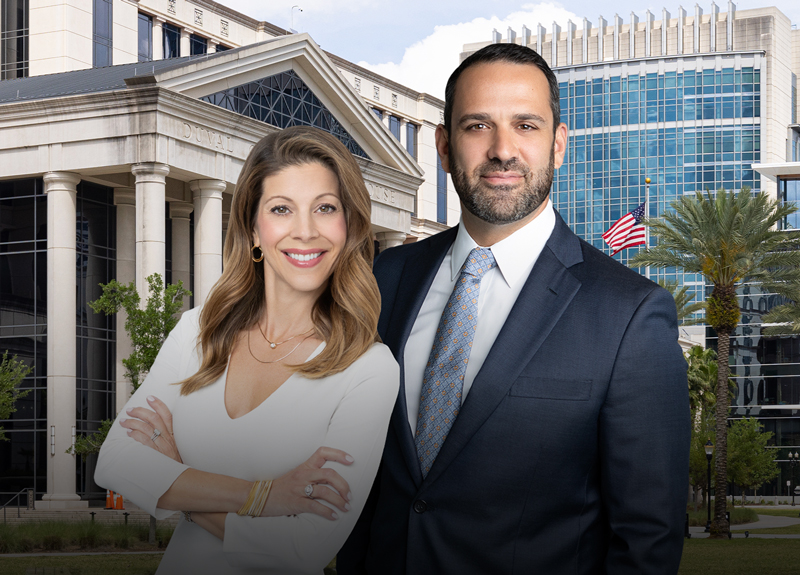A rotator cuff injury can happen in a car accident, violent act, slip and fall, or a wide range of other incidents. Recovering from a rotator cuff injury can be a long, tedious process due to the complexity of the shoulder joint. Depending on the extent of your injury, you may be facing surgery and months of post-op physical therapy.
Below, you’ll learn the basics of a rotator cuff injury, including what type of damage it entails, common causes, treatment options, and what to do in the aftermath. The key is partnering with a healthcare provider who is experienced in treating rotator cuff injuries so you can get on the path to recovery.
What Is a Rotator Cuff Injury?
The rotator cuff is a set of muscles and tendons that secures the shoulder joint and allows a wide range of arm movement. When these tendons get torn or strained, it can be painful to move your shoulder. You may also have a limited range of motion with the affected arm.
A rotator cuff injury can be caused by a wide range of activities or incidents. Any time the shoulder absorbs sudden impact or force, it can get damaged. Even a seemingly minor collision can cause serious harm that worsens over time without proper treatment.
A rotator cuff tear can be a catastrophic injury to the shoulder. A complete tear occurs when your tendon is completely separated from the bone. If your tendon is still somewhat attached to your humerus, then it’s called a partial or incomplete tear. These types of rotator cuff injuries typically require surgery.
Common Causes of Rotator Cuff Injuries
Overuse and aging can lead to degenerative tears.
Many rotator cuff injuries result from acute trauma in accidents such as:
- Car accidents: Sudden jerking during a crash can tear or strain shoulder tendons
- Slip and fall accidents: Falling onto an outstretched arm or directly onto the shoulder can rupture the cuff
- Workplace incidents: Heavy lifting, repetitive overhead work, or being struck by machinery can lead to serious shoulder damage
- Bicycle or pedestrian crashes: Impact with a vehicle or the ground can cause complete or partial tears
If left untreated, you may suffer chronic pain, instability, or weakness. Treatment options will vary based on the type and severity of your injury.
Signs and Symptoms to Look for
Rotator cuff injuries can vary in severity from mild strains to full-thickness tears. Symptoms may appear immediately after an accident or develop gradually over time.
Common signs include:
- Shoulder pain that worsens with movement or at night
- Weakness when lifting or rotating the arm
- Limited range of motion
- A clicking or popping sensation when moving the shoulder
- Persistent stiffness or swelling
These symptoms can resemble other shoulder conditions. Therefore, you need a prompt medical evaluation if you’re experiencing any of them. Your provider may order an MRI to confirm the extent of the injury.
Diagnosis and Treatment Options for Rotator Cuff Injuries
The treatment your provider recommends will be based on the severity of the tear and your overall health. Treatment options may include rest and immobilization, physical therapy, medication, injections, or surgical repair.
Recovery times vary widely. You may need a few weeks to recover from a minor strain. On the other hand, resuming normal activities after a surgical repair of a torn rotator cuff can take several months. If your provider recommends rehabilitation, make sure you follow through.
How Rotator Cuff Injuries Occur in Accidents
Rotator cuff injuries can happen in a number of ways.
In a car crash, the sudden deceleration that occurs can cause you to tense and brace your arms against the steering wheel or dashboard. This instinctive motion puts an extreme amount of pressure on your shoulder tendons.
During a slip and fall, you may instinctively reach out to catch yourself or break your fall. When you do, your shoulder joint may rotate sharply, which can tear or overstretch the tendons.
Workers in construction, manufacturing, and healthcare are at a high risk of developing rotator cuff injuries due to repetitive lifting and awkward motions that can weaken the shoulder over time. If your shoulder is already compromised, a sudden incident can lead to a severe injury.
Complications of Rotator Cuff Injuries
If your rotator cuff injury goes untreated, it can lead to:
- Chronic pain and stiffness
- Loss of strength and mobility
- Frozen shoulder
- An increased risk of arthritis
You may also find it difficult to perform daily tasks or work in a demanding job. If someone else’s negligence caused your injury, you may be able to pursue compensation for medical bills, lost income, pain and suffering, and future care needs.
Contact Our Jacksonville Personal Injury Attorneys at Baggett Law Personal Injury Lawyers for a Free Consultation
If you or a loved one has suffered a rotator cuff injury due to an assault, motor vehicle accident, slip and fall, or other event beyond your control, know that Baggett Law Personal Injury Lawyers are here to help. Our experienced Jacksonville personal injury lawyers can fight for justice on your behalf as we strive to obtain fair compensation. Contact us to set up a free consultation at (904) 396-1100.

